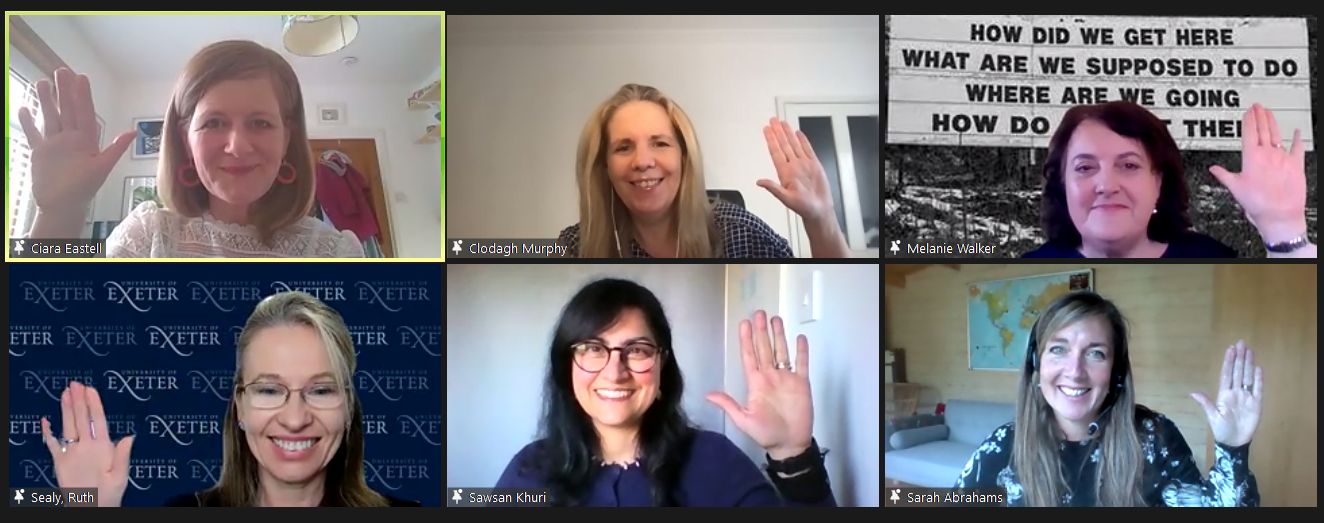July 2021, Nasara Al-Hassan. A young person’s reflection of a panel discussion around the impact that the pandemic has had on women, and how they can rise once again to help with reset and recovery.

The Coronavirus pandemic has impacted millions of people in ways they could never imagine, and fully disrupted everyone’s work and home life. Statistics have shown that women suffered the brunt of the pandemic, with a higher COVID19 case rate as well as a more detrimental impact on their lives. On International Women’s Day, the University of Exeter hosted a panel discussion on Reset and Recovery with regards to Women, Business, and the Pandemic. The panel consisted of four successful women, including Sawsan Khuri of Collaborative Capacities.
The first question for the panel asked how the pandemic had affected girls and women in the Southwest UK. Panellists explored the burden for women having to run businesses and having to look after the home. The pandemic meant children were no longer in school and large numbers of mothers had to somehow balance a 9 to 5 job while also attending to their children’s daily needs. Women in times of extreme crisis respond to stress using a ‘tend and befriend’ approach. This approach is useful because it ensures females reach out for social support during times of stress. However, women also have the instinct to protect, tending to the needs of their loved ones. During the isolation that was imposed during repeated lockdowns, befriending support networks were not able to mobilise, and the tending became exhausting. Being stuck at home has forced us to reflect and challenge the existing social construct that is based on traditional gender stereotypes.
The discussion then moved onto the topic of what roles women in the Southwest should be playing in challenging the existing social construct and in reset and recovery after the pandemic. Women must be role models for how they want the country to progress. It is not enough to criticise and complain about the system without taking part in the change we hope to see. Collaboration between multiple people and multiple organisations will be necessary to reset and help recover the working world into an equal environment of opportunity for all genders.
Finally the panellists were led to explore how we could seize the moment post-pandemic to create a more diverse and inclusive approach to developing businesses. To enact change we must proactively align our strategies with our end goals. For this to be successful things must be challenged to allow ourselves to be held accountable. To reach our goals there will be some sort of collaboration. Within this collaboration, it is important to listen with the intent of hearing what the other person is saying which will result in engaging and productive discussion. Whilst seizing the moment, it is important that we give positive feedback to the women in our life and champion the positive things happening out there.
Sawsan Khuri summarised the discussion in one powerful take-home message on a LinkedIn post: Listen to everyone with empathy, and the intention to challenge and collaborate on creating and realising opportunity for all.
(Photo creds: Ciara Eastell OBE)

